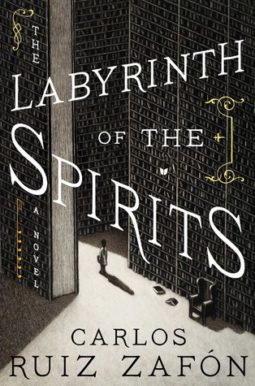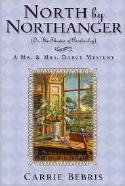This review contains affiliate links, which earn me a small commission when you click and purchase, at no extra cost to you. Thank you for supporting my small business and allowing me to continue providing you a reliable resource for clean book ratings.
The story of forgotten or disappeared novelists, owners and employees of small bookshops and those who are in the know about the Cemetery of Forgotten Books in Barcelona concludes in this lengthy but worth-every-word novel. Daniel Sempere and his wife, Bea, and their young son, Julian, play a part, as well as their verbose, devoted friend, Fermín; doomed writers Julian Carax and David Martín, who were the focus of earlier books, make appearances.
In this book, new characters are introduced who carry the weight of the story. Alicia Gris, a young woman who 20 years before was wounded badly in the bombings of Barcelona by the fascists, has been an investigator for the secret police of Spain for a decade. At not quite 30, she has seen more of violence and evil than she’ll ever be able to wash away from her system, but she is ready to at least step away from the unspeakable work she has to do. Her mentor, Leandro, insists she do one last job for him and the country: find the missing minister of culture, Mauricio Valls. She is joined in the investigation by a longtime policeman, Juan Manuel Vargas, and while she says she always works alone, she grudgingly finds that Vargas is a worthy partner.
Valls was the director of the notorious Montjüic Prison in Barcelona during World War II, where David Martín and another writer, Victor Mataix, were prisoners. Valls’ cruel treatment of them and so many others gives Vargas and Alicia plenty of options for who would want Valls dead. But when she finds a rare book by Mataix hidden in Valls’ desk, Alicia is sure the trail must go through these writers somehow. As she and Vargas investigate how they’re involved, in part by seeking out information at the Semperes’ bookshop, they discover more death and loss than they had even expected. Even for two hardened investigators who have seen it all and kept themselves alive through threat after threat, this investigation turns particularly dangerous. But they are determined to find the truth, even if it means they won’t survive the hunt.
The Labyrinth of the Spirits is a hefty 800-plus pages, and I found it much easier to physically handle by buying the Kindle version. I just pushed a button to enter this part of the story, introduced to me through the previous three books (The Shadow of the Wind, The Angel’s Game, and The Prisoner of Heaven), feeling I’d just stepped away for a while and was coming back to an old friend. As Carax says, “A story has no beginning and no end, only points of entry,” and I felt that keenly as I dived down deeply into it whenever I picked up the book (device) again. The city of Barcelona and the haunts made so familiar in the earlier books are just the same here. The city, its atmosphere, the weight of fear hanging over the city engendered by the corrupt government under the longtime dictator, Franco, form a character on their own, shadowed by secrets and old pain that throbs quietly just under the surface. And all the stories! This gorgeously crafted novel holds within it layers of stories that have run through the whole set of books and whose threads end up tying off together by the end in some way. And each story pays homage to other stories, to the power of literature. It’s all such a love letter to books, and masterfully done.
Rated: High. There are roughly 10 to 12 instances of strong language and more instances of moderate language. Sexual content partly involves brief references to sex happening, without a lot of detail; it’s mostly crude comments made by the colorful character Fermín, who enjoys a lush woman (in the case of most of these books, his wife) and plenty of hearty meals. Violence is moderate to high, with a number of references to torture happening and plenty of perilous situations involving shooting, knife attacks and more. In a way, overall the book feels like a strong-ish moderate, considering these things are spread across 800 pages rather than just 300 or so. Violence is probably weighting the rating the strongest toward high-moderate or high.
Click here to purchase your copy of The Labyrinth of the Spirits on Amazon.




